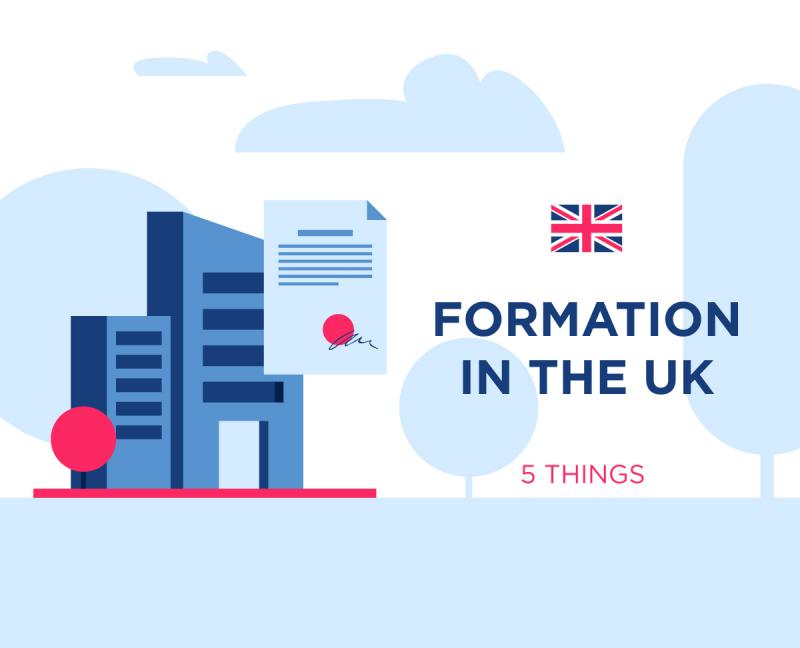
If you want to form a company in the UK but are based outside the country, it’s not difficult as long as you satisfy certain requirements and are properly set up for business. That means everything from registering at Companies House to arranging your banking and how to accept and make payments.
More international companies choose the UK than anywhere else in Europe because of its business advantages. So, once you’re set up legally and financially, you’ll enjoy all the benefits of the UK’s favourable trading environment and can develop new products, seek new suppliers, and attract new customers.
Your first step is to decide the legal status of your business. For many small and medium-sized enterprises, it means creating a limited company. To register a UK limited company, you must incorporate it at Companies House in either England, Wales, Scotland or Northern Ireland. Amongst other things, you must also:
● Choose a name for your company
● Provide your business address
● Appoint your officers (directors and company secretary)
● Allocate shareholders and shares
● Submit a memorandum and articles of association (rules for running the company)
● Register for corporation tax
See GOV.UK’s step-by-step guide to set up a limited company.
There are three ways you can complete all the requirements to incorporate your company:
● Online via the Companies House website
● By post using a paper application to Companies House
● Online through an approved formations agent
Using a formation agent is often the quickest and most convenient way to form a UK company because everything is completed by a professional firm that specialises in registration (ie, ‘formation’). If you register through a formation agent, you won’t need to travel to the UK, send documents through the post, or complete an application in person. The formation agency will deal with Companies House and meet the obligations of the Companies Act 2006.
If you don’t want to form a company, you can register as a sole trader. As a sole trader, rather than a limited company, there are fewer steps to launch your business and less administration once you’re up and running, but you must still meet certain legal requirements, which may include a licence for some trades, and manage your tax affairs. And, of course, you’ll still need a business bank account and a way to accept and make payments (see below). For example, you may have an online business that needs to accept debit and credit card payments.
Note that, unlike UK-domiciled businesses, overseas businesses are not allowed to register in the UK as partnerships or LLPs.
Whether you’re a limited company or a sole trader, you must manage the flow of money in and out of your business, which means you’ll need a bank account and a way to accept and make payments.
Although it’s not a legal requirement for an overseas company to have a UK bank account, it will be easier for you to trade in the UK if you have one. It means transactions can be processed more smoothly and without excessive fees.
However, it can be quite demanding to open an account because of anti-money laundering (AML) and other checks that banks must follow. As a minimum, you’ll need to prove your identity (including all named company directors) and address, plus provide financial/trading background on your company.
With the rise of online payment providers such as Safenetpay, it’s now much easier to get up and running with business accounts and to accept and make payments in versatile ways that are not limited to traditional banking. This is increasingly important for businesses that trade heavily online.
With Safenetpay supporting your business, you can get a UK account number, sort code, and IBAN in your own name. And thanks to a simple application process, you can set up in no time. You also benefit from very competitive exchange rates when you operate internationally, can trade in multiple currencies, and have a wide number of options to make and accept payments.
There is a £12 fee to register a company directly with Companies House (or £40 if you do so via post), but if you register through a formation agent you normally pay less. Additional (small) costs may include printing formal company documents such as share certificates and a certificate of incorporation. Other set-up and running costs will depend on the nature of your business. For example, the cost of business premises, equipment and marketing, and hiring staff. Each year, you must also pay £13 to file an Annual Return (AR) to Companies House.
Operating costs and cash flow are big challenges for any business and particularly start-ups. But a range of financial help is available to UK-based entrepreneurs and small businesses, and a good starting point is to discuss your needs with the British Business Bank. The Enterprise Investment Scheme (EIS) and the Seed Enterprise Investment Scheme (SEIS) are two options for overseas companies who want to establish themselves in the UK. These schemes offer tax- efficient benefits to investors in return for supporting small businesses in the UK.
It’s important to research all your options before setting up your business. Whether you create a limited company or become a sole trader will depend on your business ambitions. The larger your turnover, the more likely you’ll opt for a limited company because it’s tax efficient. And there is no reason why you can’t start as a sole trader and then incorporate as a limited company when your business grows to a size that makes it worthwhile. Whatever legal entity you choose, your business won’t run smoothly unless you have the right banking and payment structures. For an introduction to accepting and making payments online, see Safenetpay’s Guide to Online Payment Systems.